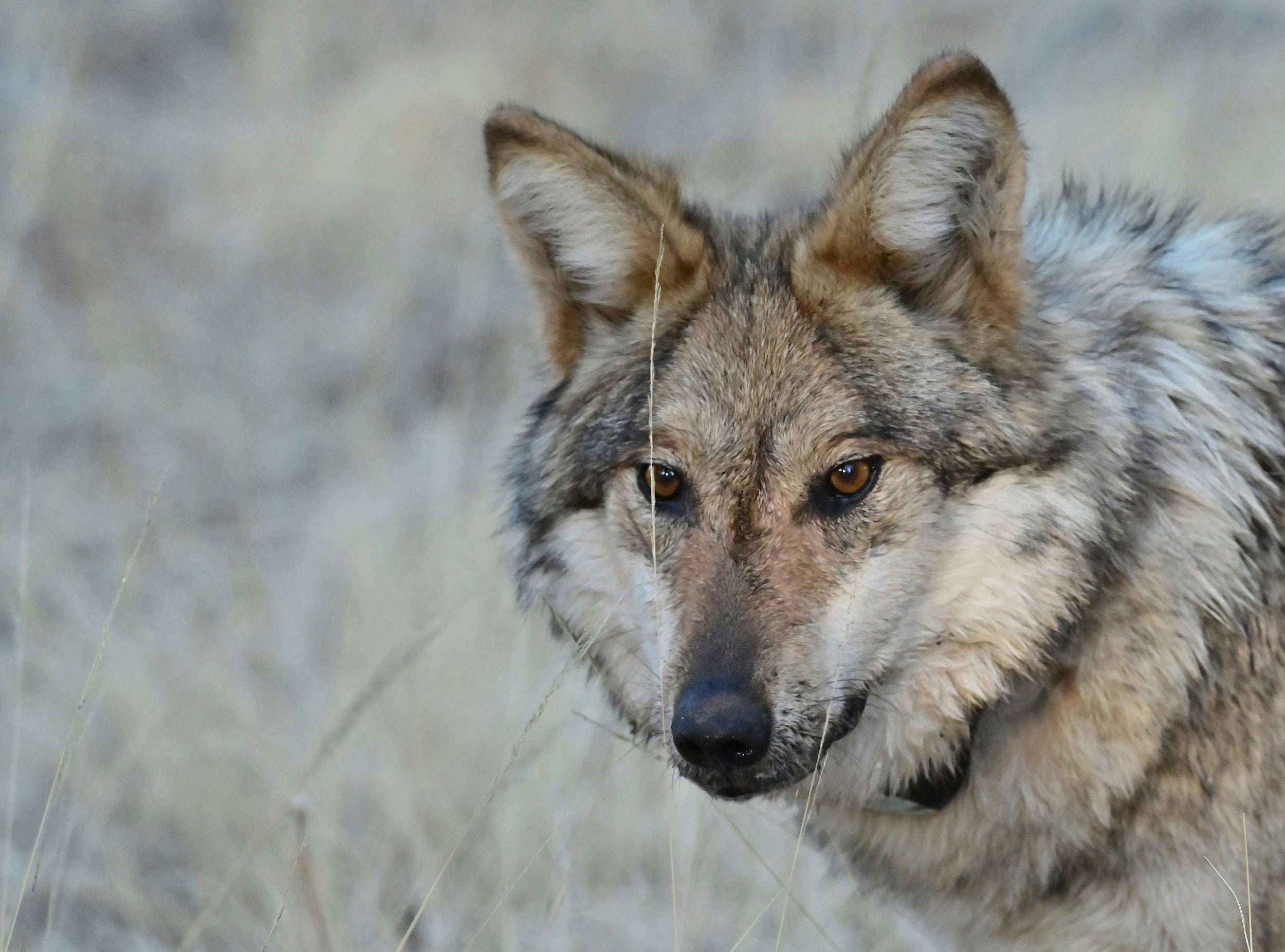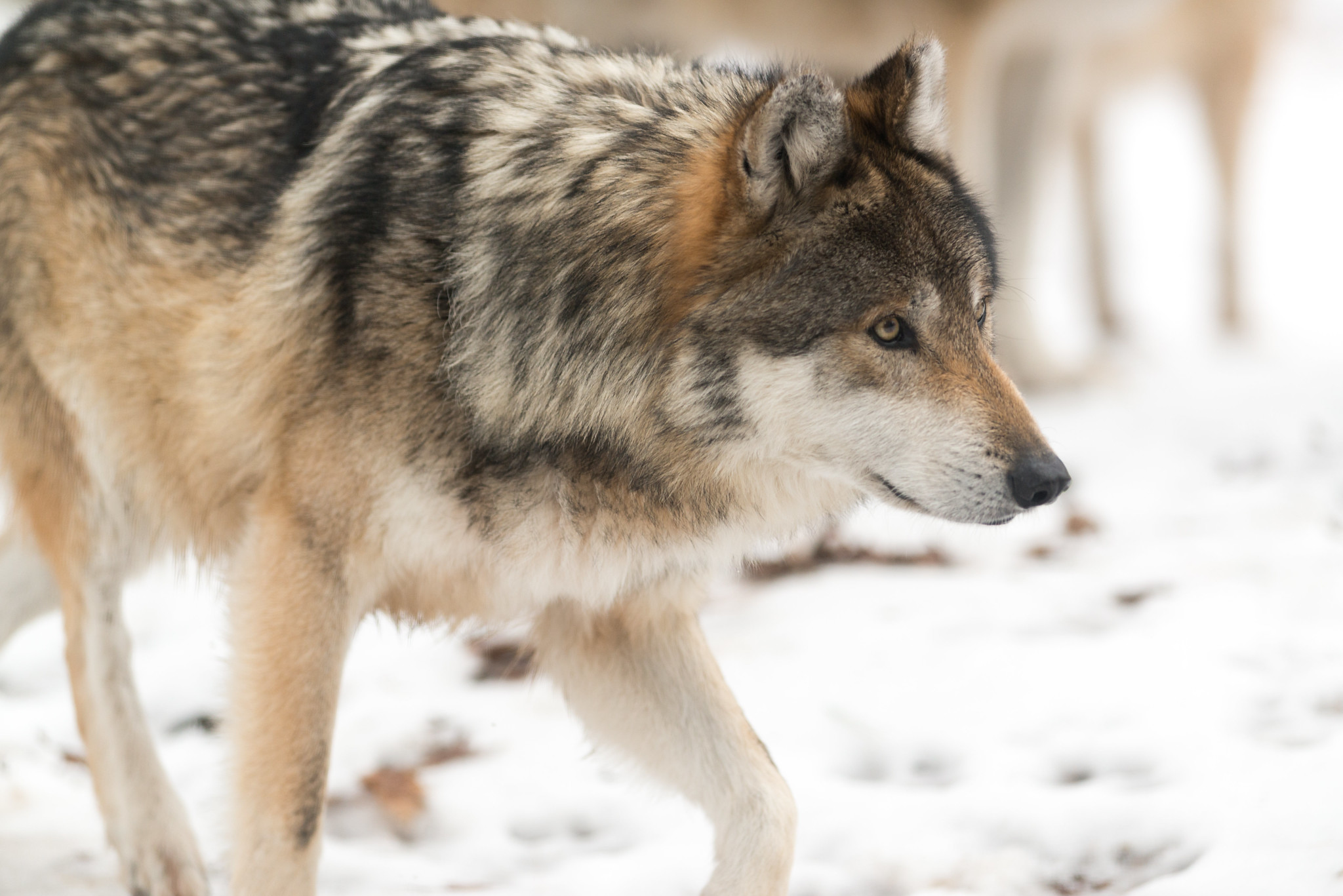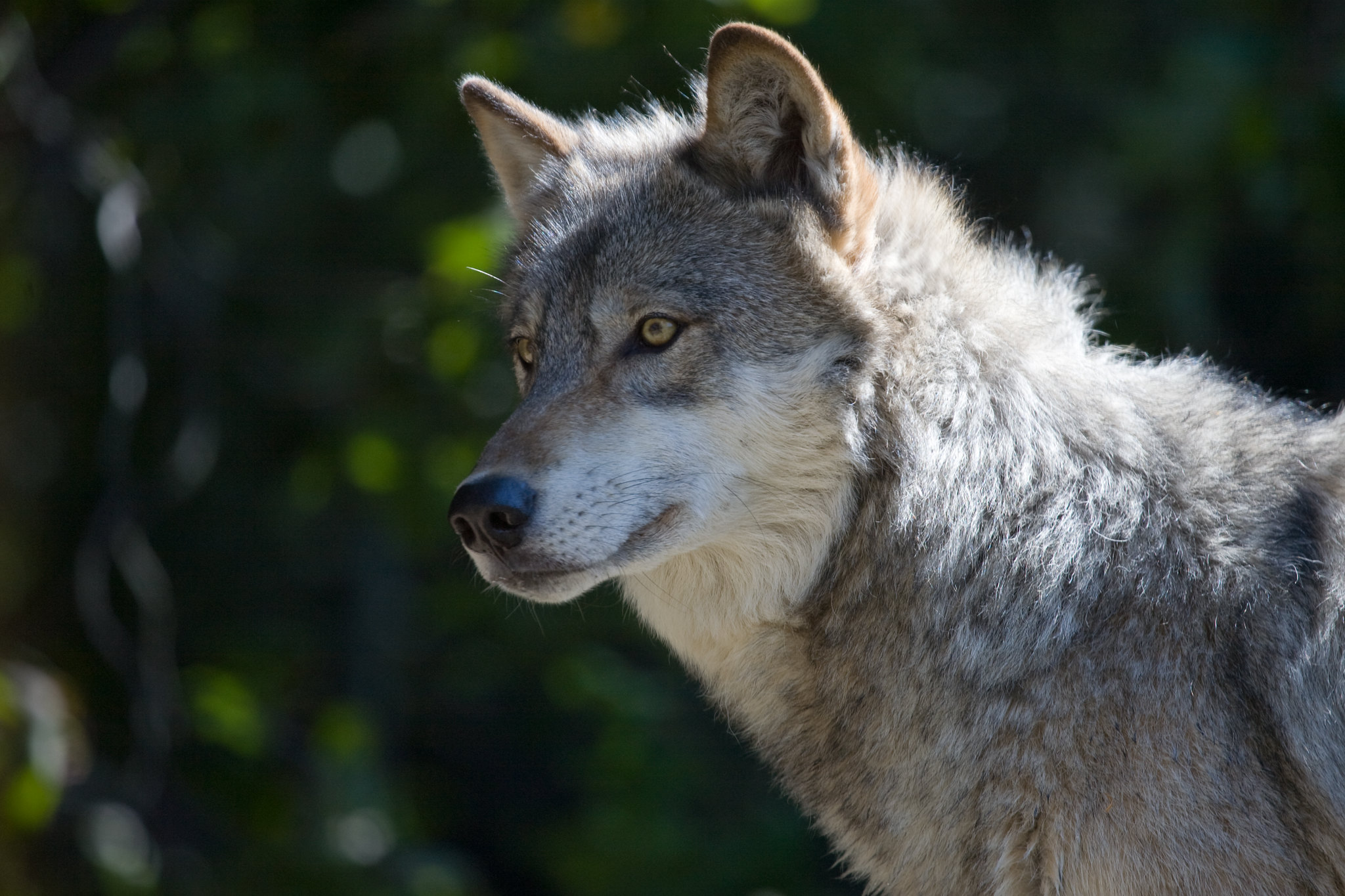A Wisconsin conservation group is suing the Department of Natural Resources alleging the agency ignored science and public comments when drafting its latest wolf management plan.
The Great Lakes Wildlife Alliance also claims the DNR revised its wolf plan after staff and members of the Natural Resources Board attended private meetings hosted by wolf hunting advocates.
The lawsuit, filed Wednesday in Dane County Circuit Court, accuses the DNR of violating Wisconsin’s open meetings law and Administrative Procedure Act while discriminating against the viewpoints of residents and researchers who submitted public comments advocating against the use of hunting to reduce wolf conflicts with livestock.
News with a little more humanity
WPR’s “Wisconsin Today” newsletter keeps you connected to the state you love without feeling overwhelmed. No paywall. No agenda. No corporate filter.
The group points to two northern Wisconsin listening sessions on a draft version of the wolf plan hosted by groups that are favorable to lethal wolf management, which it claims were attended by former DNR Secretary Adam Payne and members of the Natural Resources Board. The lawsuit claims those meetings prove the DNR continued to solicit comments that were incorporated into the wolf plan after public comments had closed.
A spokesperson for the agency told WPR it is unable to comment on pending litigation.
Melissa Smith, executive director or the Great Lakes Wildlife Alliance, told WPR the lawsuit is about more than just protecting wolves, saying it’s also about requiring government agencies to follow state laws and procedures when drafting new regulations that affect wildlife.
“It seems that the rules are there for some and the rules don’t exist for their special interest groups that they work for,” Smith said.
The 2023 Wolf Plan aims to maintain a wolf population in Wisconsin of between 800 and 1,200 animals. It replaces a plan approved in 1999 and revised in 2007 that set a population goal of 350 wolves. DNR data shows the current population is around 1,000 wolves and appears to be stabilized.
Some hunting and farm groups voiced opposition to the revised wolf plan. The Wisconsin Farm Bureau Federation and Kansas-based Hunter Nation want to see the state keep the 350 wolf population goal in order to reduce conflicts with farm animals and hunting dogs.
DNR data show just a fraction of Wisconsin’s more than 64,000 farms have been affected by wolf attacks on livestock. In the most recent monitoring period, 18 farms were impacted.
A 2022 survey by the agency shows most Wisconsin households that responded support a population of more than 350 wolves.
“People who live in wolf range, they too want the number of wolves we have or more so,” Smith said. “For us, it’s just it’s clear the system is failing and going to favor sport hunting, agriculture and extractive industries.”
Francisco Santiago-Ávila, a wolf researcher with the Great Lakes Wildlife Alliance, told WPR that studies he and researcher Adrian Treves of UW-Madison submitted provide evidence that non-lethal wolf management techniques are more effective in reducing wolf conflicts than recreational hunting.
“And so, it’s concerning that the science that points to management alternatives that would go against the agency’s preferred management alternative, which involves killing wolves at a particular rate, is missing from the plan,” Santiago-Ávila said.
The suit asks the court to declare the DNR’s 2023 Wolf Plan, approved by the NRB in October, invalid and block any wolf hunting season unless it complies with the state’s meeting and procedure act laws. It also seeks a declaration that the agency violated the rights of the Great Lakes Wildlife Alliance and its members “by selectively rejecting public comments from disfavored parties.”
Gray Wolves are currently protected under the federal Endangered Species Act following a 2022 federal court ruling. Those protections were removed in 2020 by the administration of former President Donald Trump and a Wisconsin wolf hunt was held in February 2021. Hunters killed 218 wolves in less than three days.
Wisconsin Public Radio, © Copyright 2025, Board of Regents of the University of Wisconsin System and Wisconsin Educational Communications Board.





